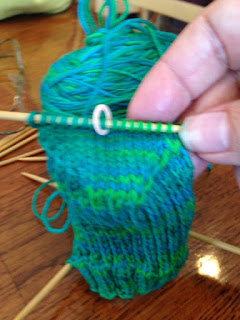 "Best Church Ever." At least on Christmas Eve, that's what one seven year old thought. I wonder what it was that made her write those words. I wonder what it was she loved so much.
"Best Church Ever." At least on Christmas Eve, that's what one seven year old thought. I wonder what it was that made her write those words. I wonder what it was she loved so much. "Best Church Ever."
It's the kind of note a pastor wants to save, and possibly even frame. Especially it's the kind of note the pastor of a small congregation, with more retired people than children, wants to save. Our small congregation is tempted to look around and wonder what we have to offer families: after all, there are many large (some mega) congregations around us. They have large and busy children's ministries. They have separate churches for children while parents go to "adult" worship. They have age-specific ministries. How can we compete with that? We can't.
Even more amazing to me was that this note was from our 7:00 candlelight service, not our 4:00 "especially for families with children" service. Now I happen to think that the 4:00 service was pretty great. There were a lot of children there. The service was engaging and interactive and we still got to sing a lot of Christmas carols. Children got to pretend they were angels and adults got to wave canes and umbrellas and pretend they were shepherds. A four year old boy stood out in the narthex and handed out candy canes to everyone who came.
At 7:00 there was no children's message, just singing and a sermon and of course, candles and darkness at the end. It was not tailored specifically for families with children, although extended families attended: grandparents and parents and grandchildren took entire rows. Maybe that was part of why it was great. Maybe children actually sometimes like to sit with their grandparents and their parents in worship and sing the songs together. Maybe they even need to do it.
Or perhaps it was the candles. There is something about receiving the light, and then sharing it with the next person, and then seeing everyone together in the light of the candle. Maybe the seven year old who both receives the light and then passes it to the person next to him feels important, as if he is a part of something great and wonderful.
It is great to have programs for children. Large churches can offer a lot. But every church can offer what children need: a place to worship with people older and younger than themselves, learning to sing and pray and know Jesus. Every church can be what children need: a place where children both receive the light, and can pass it along to someone else, a place where children learn that they are valuable and worthy, a part of the mission of God.
